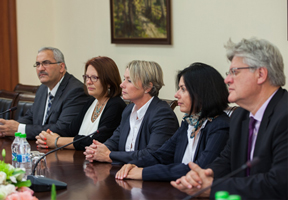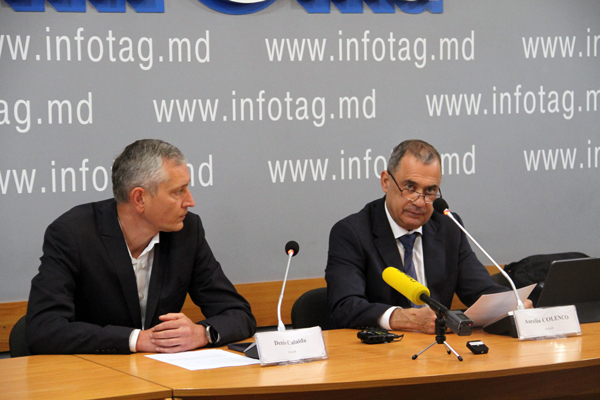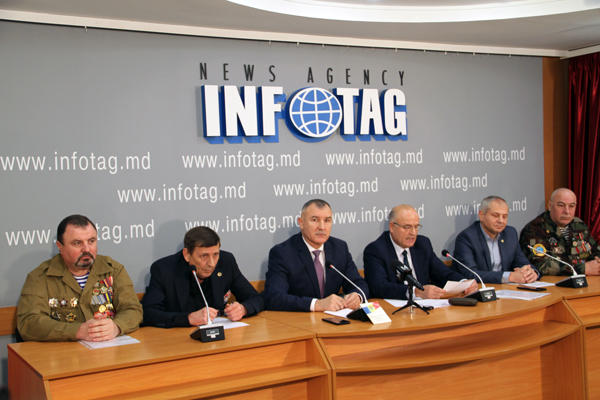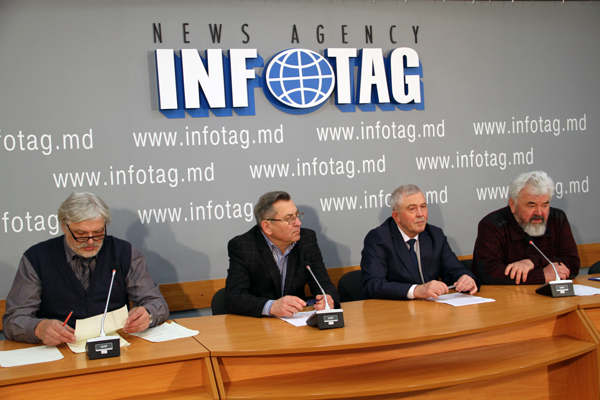Politics
PACE MISSION FINGERS AT LOTS OF PROBLEMS IN MOLDOVA’S PRESIDENTIAL CAMPAIGN

A delegation from the Parliamentary Assembly of the Council of Europe, led by Elisabeth Schneider-Schneiter (Switzerland, Group of the European People’s Party), visited Chisinau this week to assess the election campaign and preparations for the presidential election to be held here on October 30.
Before leaving Chisinau on Thursday, the pre-electoral delegation issued a Statement saying in particular that with regard to the election legislation, the PACE experts noted that the recent amendments to the election legislation in 2016, if properly implemented, should enable presidential election to take place in conformity with Council of Europe standards, but “Nevertheless, despite the adoption of the law limiting concentration of media ownership, this law would not be fully effective until the expiration of current licenses”.
The Statement authors remarked that the election campaign environment in Moldova is mostly characterized by a geopolitical division between pro-Europe and pro-Russia. And though it is not in the mandate of the Assembly’s delegation to assess the geopolitical preferences in the Moldovan society, PACE experts noticed that, no matter the geopolitical sensibilities, a number of long-standing serious concerns, identified in the Parliamentary Assembly’s resolutions and election observation reports still remain unaddressed.
These are: the lack of results in the fighting against corruption; the obscure system of funding of political parties and election campaigns including external funding; the monopolization of many media outlets and lack of transparency concerning their sources of funding; and the role played by oligarchic structures in the country’s political life, especially in the electoral process.
The delegation was also informed about “the involvement of the Orthodox churches in the election campaign of some candidates. In this regard, the delegation recalls that the principle of separation between state and religion institutions must be respected”.
The Statement further said that the Central Election Commission informed the delegation that the registration of presidential candidates was inclusive. Concerning the signatures collecting procedure, the delegation was informed by different interlocutors about “misuse of administrative resources mostly in favor of the Democratic Party’s candidate [DP Chairman Marian Lupu].
There were allegations that administrations of some state institutions, like Posta Moldovei state enterprise, Moldtelecom, Moldovagaz, also schools and hospitals, “make pressure on their own employees to put their signatures on the lists”, said the Statement.
“Cases were also reported about misuse of administrative resources in favor of some other potential candidates at the level of local authorities. The Assembly’s delegation strongly condemns such practices which must be excluded from election campaign and recalls the need to de-politicise the state institutions, as previously requested by the Assembly. Independent candidates or from small political parties complained about the required number of signatures and their geographical distribution as well as the short campaign period”, the pre-electoral delegation wrote.
The PACE experts indicated also the insufficient number of polling stations, which the Moldovan Government is going to arrange for compatriots staying abroad, and at the growth of the number of voters in the republic compared with 2005.
“Despite a large number of media outlets with dozens television channels, according to many interlocutors, the media pluralism can be considered as limited because of the dominant role of one media holding group affiliated to one of the political parties. In this regard the Assembly’s delegation recalls that the Audiovisual Code of Moldova obliges all broadcasters to ensure equal, fair and impartial media coverage for all presidential candidates. Unbalanced media coverage and a very high degree of ownership concentration were mentioned in previous PACE reports as a matter of serious concern”, said the Statement.
The PACE delegation regrets that, despite of its invitation to different media, including the public broadcasters, most of them were not able to meet with the delegation.
The delegation wrote that one of the main reasons for the long-standing political crisis in Moldova is “the lack of confidence in the state institutions resulting from multiple corruption scandals, including one major bank scandal which had a political impact”.
“This aspect is particularly worrying in a country that faces serious economic and social problems and a high level of poverty. A considerable proportion of the general public is convinced that corruption is common in the Republic of Moldova… While campaign and party finance legal regulations have improved, for many interlocutors, significant financial resources could still be used for electoral purposes without any control”, said the document.
The Parliamentary Assembly of the Council of Europe will send a 22-member delegation to observe the presidential election on October 30.
























Add Comment